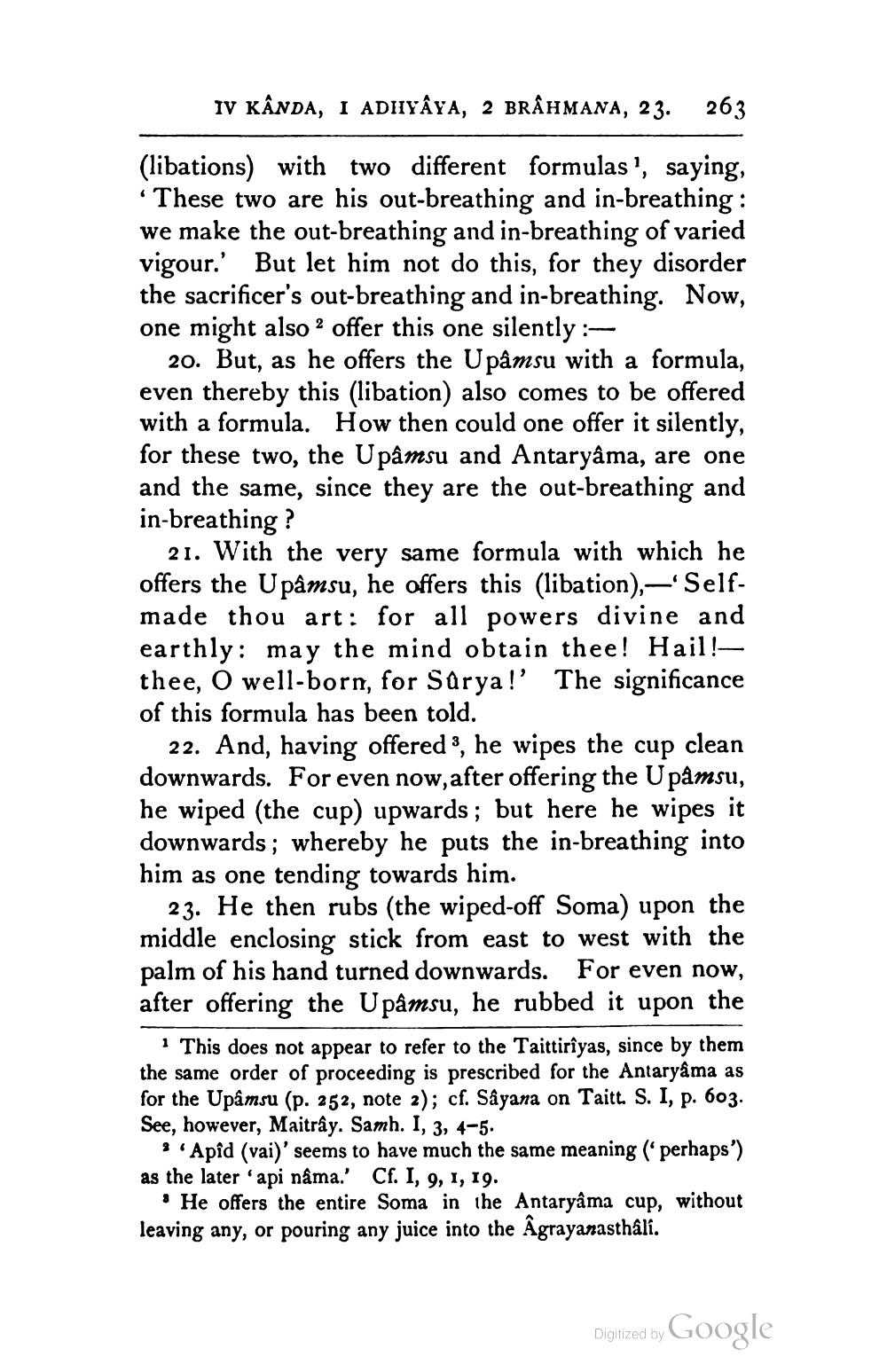________________
IV KÂNDA, I ADIIYÂYA, 2 BRÂHMANA, 23.
263
(libations) with two different formulas', saying,
These two are his out-breathing and in-breathing : we make the out-breathing and in-breathing of varied vigour.' But let him not do this, for they disorder the sacrificer's out-breathing and in-breathing. Now, one might also 2 offer this one silently :
20. But, as he offers the Upâmsu with a formula, even thereby this (libation) also comes to be offered with a formula. How then could one offer it silently, for these two, the Upâmsu and Antaryâma, are one and the same, since they are the out-breathing and in-breathing ?
21. With the very same formula with which he offers the Upâmsu, he offers this (libation),– Selfmade thou art: for all powers divine and earthly: may the mind obtain thee! Hail!-- thee, O well-born, for Surya!' The significance of this formula has been told.
22. And, having offered 3, he wipes the cup clean downwards. For even now,after offering the Upamsu, he wiped (the cup) upwards; but here he wipes it downwards; whereby he puts the in-breathing into him as one tending towards him.
23. He then rubs (the wiped-off Soma) upon the middle enclosing stick from east to west with the palm of his hand turned downwards. For even now, after offering the Upamsu, he rubbed it upon the
This does not appear to refer to the Taittirîyas, since by them the same order of proceeding is prescribed for the Antaryâma as for the Upâmsu (p. 252, note 2); cf. Så yana on Taitt. S. I, p. 603. See, however, Maitrây. Samh. 1, 3, 4-5.
8. Apid (vai)' seems to have much the same meaning ('perhaps”) as the later 'api nama.' Cf. I, 9, 1, 19.
• He offers the entire Soma in the Antaryâma cup, without leaving any, or pouring any juice into the Âgrayanasthali.
Digitized by Google




